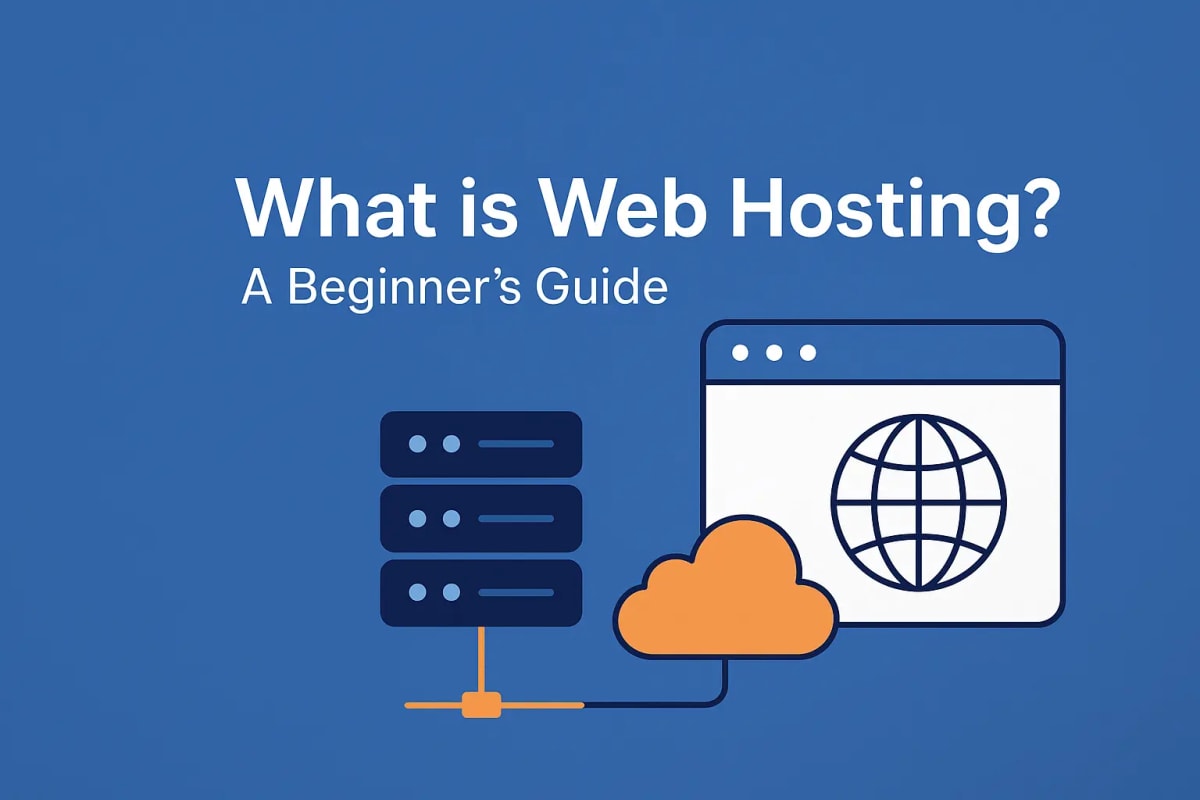
New to web hosting? Discover the 10 most common mistakes beginners make—like choosing the wrong plan or ignoring uptime—and learn how to avoid them for a faster, safer, and more scalable website.
News and Niche
Choosing the right web hosting is a crucial first step for anyone building a website. Whether you’re launching a personal blog, a portfolio site, or an online store, your hosting provider can significantly influence your site's speed, reliability, security, and scalability. However, many beginners rush through this decision or fall into common traps that lead to performance issues and frustration down the road.
In this comprehensive guide, we’ll uncover the ten most common web hosting mistakes beginners make and provide actionable advice on how to avoid them. If you're just starting your online journey, avoiding these missteps will save you time, money, and countless headaches.
1. Not Understanding Different Types of Web Hosting
One of the biggest mistakes beginners make is signing up for a hosting plan without understanding the various types available. Hosting isn’t one-size-fits-all. Each type of hosting has its advantages and disadvantages, and choosing the wrong one can hold your site back.
Shared Hosting
Shared hosting is the most basic and affordable option, where multiple websites share the same server resources. It’s a good choice for beginners, hobbyists, or anyone launching a low-traffic website. However, it comes with some drawbacks, including limited resources and the possibility of slower performance if other sites on the same server consume too much bandwidth.
Who it’s for: Beginners, personal blogs, static websites.
VPS (Virtual Private Server) Hosting
VPS hosting bridges the gap between shared and dedicated hosting. Although multiple websites still share a physical server, each has its own virtualized space with allocated resources. This ensures better performance, flexibility, and control.
Who it’s for: Medium-sized businesses, developers, or sites expecting moderate traffic.
Dedicated Hosting
Dedicated hosting gives you an entire server to yourself. This means maximum control, security, and performance. However, it’s also the most expensive and typically requires technical know-how to manage.
Who it’s for: Large enterprises, high-traffic websites, e-commerce platforms.
Cloud Hosting
Cloud hosting uses a network of servers to host your website. It offers excellent scalability, uptime, and resilience. If one server fails, another takes over instantly. It’s an ideal solution for businesses expecting unpredictable traffic spikes.
Who it’s for: Startups, growing websites, SaaS companies, or businesses wanting scalable infrastructure.
Managed WordPress Hosting
This is a specialized hosting solution optimized for WordPress sites. It includes features like automatic updates, enhanced security, and expert support. Although it may cost more than shared hosting, the convenience and performance benefits are often worth it.
Who it’s for: Bloggers, entrepreneurs, and businesses using WordPress who want ease of use and support.
Reseller Hosting
This hosting type allows you to sell hosting services to others. You buy hosting resources in bulk and allocate them to individual clients. It's a business opportunity for web developers or agencies.
Who it’s for: Freelancers, agencies, and entrepreneurs looking to start a hosting business.
Avoid it: Don’t choose a hosting plan just because it’s popular or inexpensive. Evaluate your needs—both now and in the future—and select a plan that aligns with your goals. If you're unsure, start with a scalable plan or a provider that allows easy upgrades.
2. Choosing a Web Host Based Only on Price
It’s tempting to go for the cheapest option, especially when you're just starting out. However, low-cost hosting can come with hidden downsides such as poor customer support, slow loading times, frequent downtime, and limited features.
Avoid it: Compare features, reviews, uptime guarantees, and customer support quality—not just the price. A few extra dollars a month can make a big difference in performance and peace of mind.
3. Ignoring Customer Support Quality
When things go wrong—and they often do in the digital world—having responsive and knowledgeable support is essential.
Avoid it: Before signing up, test the host’s support channels. Send a pre-sales question via live chat or email. Check review sites for real customer experiences.
4. Overlooking Uptime Guarantees
If your website is down, visitors and customers can't reach you. Poor uptime leads to lost traffic, credibility, and revenue.
Avoid it: Look for a host that offers a minimum uptime guarantee of 99.9%. Review third-party uptime monitoring sites to verify their claims.
5. Failing to Check Scalability Options
Many beginners choose a plan that suits their current needs but forget to consider how their site might grow.
Avoid it: Choose a provider that allows easy upgrading to more advanced plans. Ask about their scalability process and potential costs.
6. Not Backing Up Your Website Regularly
Backups are your safety net. If something goes wrong—whether due to a hack, plugin conflict, or accidental deletion—a backup can restore your site quickly.
Avoid it: Ensure your host offers automated backups. If not, use a third-party tool or plugin to create regular backups and store them safely.
7. Ignoring Security Features
Beginner webmasters often neglect basic security measures, leaving their sites vulnerable to attacks, spam, and data breaches.
Avoid it: Choose a host that provides SSL certificates, malware scanning, DDoS protection, and firewalls. Always enable two-factor authentication when available.
8. Using a Free Hosting Service
Free hosting may sound attractive, but it often comes with serious limitations such as forced ads, lack of support, slow speeds, and no custom domain name.
Avoid it: If you’re serious about your website, invest in a reputable paid hosting provider. The benefits far outweigh the minor cost.
9. Not Reading the Terms of Service
Terms and conditions may seem boring, but they contain essential information about your rights, resource limitations, refund policies, and account suspension rules.
Avoid it: Always read the fine print. Make sure the terms align with your expectations and business goals.
10. Choosing the Wrong Hosting Location
Server location affects loading speed. If your audience is mostly in one country, your server should be nearby.
Avoid it: Select a data center close to your target audience or use a host with a reliable content delivery network (CDN).
Want to understand the basics first? Read: What is Web Hosting? A Beginner’s Guide
Beginner FAQs About Web Hosting
Even after understanding the most common mistakes, many beginners still have important questions. Here are some of the most frequently asked questions about web hosting:
Do I Need a Hosting Plan If I Use Wix or Shopify?
Not necessarily. Platforms like Wix and Shopify are all-in-one solutions, meaning they include hosting as part of their package. You don’t need to purchase a separate hosting plan to build and run your site on these platforms. However, this convenience often comes at a higher price, and it limits your control and flexibility compared to traditional hosting.
If you prefer drag-and-drop simplicity and don’t plan to manage the technical aspects of your website, these platforms might be ideal. But if you want full control, scalability, or the ability to migrate your site easily, using a traditional hosting provider with a CMS like WordPress is a better long-term strategy.
Can I Switch Hosting Providers Later?
Yes, you can switch hosting providers anytime. This process is known as website migration. Most reputable hosts offer free or paid migration services to help you move your files, databases, and settings. It’s a bit technical, but very manageable, especially with support from your new host.
That said, switching can cause downtime or technical glitches if not done properly. So it’s best to prepare carefully, back up your site beforehand, and schedule the switch during a low-traffic period.
Is Hosting Billed Monthly or Yearly?
Most hosting providers offer both monthly and annual billing options. Monthly billing provides flexibility but often costs more in the long run. Yearly or multi-year plans usually come with discounts and bonuses like free domains, SSL certificates, or marketing credits.
For beginners, annual plans can offer the best value, especially when launching a new project. However, if you’re just testing the waters, a monthly plan can give you time to evaluate the host before committing.
Web hosting might seem technical and confusing at first, but making informed decisions can make or break your online journey. By avoiding these ten common mistakes, you set your website up for better performance, reliability, and growth.
As your site grows, revisit your hosting choices regularly. Your initial plan may not suit your long-term goals. With the right hosting strategy and provider, your website can thrive in a competitive digital landscape.
Ready to make a smarter hosting choice? Begin by reviewing your current setup and consider whether it meets your needs today—and tomorrow.
